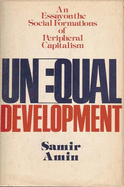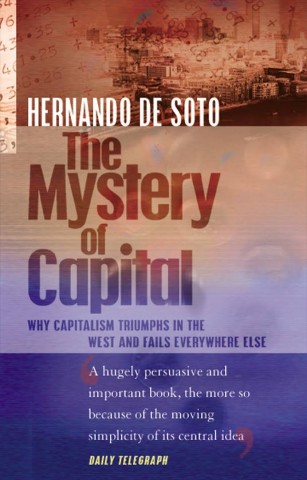A recent post explored the concept of unequal development, under-development and the exploitation of the third world proposed by Amin several decades ago. In this post, we continue exploring Samir Amin's "Unequal Development: An Essay on the Social Formations of Peripheral Capitalism" from 1976, and focus upon his analysis of capitalism - what it is, how it is formed and its impact.
On the development of capitalism:
- "Insofar as conventional historiography has confused money with capital, and trade with capitalism, it has discovered capitalism everywhere – in ancient China, among the Phoenicians, the Greeks, the Romans, the Arabs of the Middle Ages, and so on… In reality the concentration of money-wealth in the hands of merchants did not automatically lead to capitalism. For that to happen there was also needed a breakup of the dominant pre-capitalist mode in the formation to which effects of long-distance trade had been added – a breakup such as to result in the proletarianization, that is, separation of the producers from their means of production so that the way to a free labor market was opened." (p. 33)
- "…capital is not a thing but a social relation, since the vector of relative prices depends on both the rate of wages and the rate of profit; it shows that economic rationality is not an absolute, that it stands no higher than the rationality of the social relation that determines the division of social labor time into paid labor and surplus labor." (p. 61)
Defining capitalism:
- "I have defined the capitalist mode of production as being characterized by the exclusive appropriation by one class of means of production that are themselves the product of social labor. This exclusive appropriation by a certain class, although it has historically taken the form of individual ownership of the means of production, may also take collective forms. Capitalism exists wherever means of production that have been produced by social labor are not managed by society as a whole but by a section of the latter, which becomes a "bourgeoisie." Capitalism makes its appearance when the level of development of the productive forces is sufficiently advanced for these means of production, which are themselves products, to be no longer simple enough to be manageable by the individual producer." (p. 59)
On confronting capitalism:
- "A society that wishes to control its future must first and foremost take a long view – have a lengthy "time prospect." This was the case with the precapitalist societies, in which the dominant instance was not the economic but the politico-ideological one… all it [Capitalism] can offer them is an alienating ideology, that of the "consumer society," a short-term prospect of "growth" of consumption without any reference to real human needs. This shortening of the time-prospect results from the dominant function of the rate of surplus value. It is the rate that determines the pace of accumulation, and so, ultimately, the "rate of discount" on the basis of which choices are made. It seems to give rationality to what is irrational… In fact, "economic calculation" is nothing more than an ideological justification of the way capitalist enterprises spontaneously behave… The crisis of our civilization is wholly concentrated in this absurd contradiction of human time." (p. 70-71)


